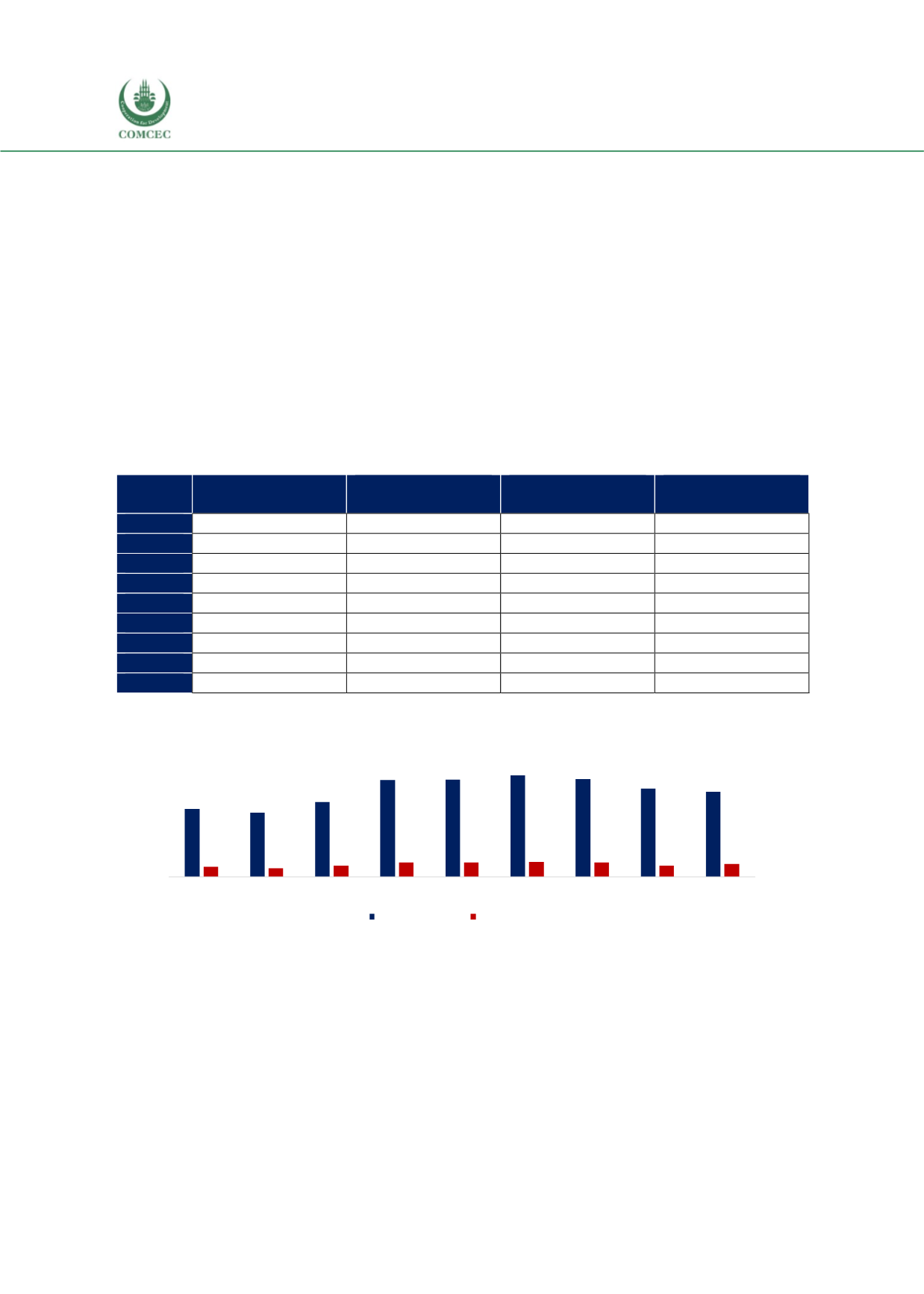

Reviewing Agricultural Trade Policies
To Promote Intra-OIC Agricultural Trade
150
4.6. Brazil
Brazil is an upper middle income country with a GDP of 2.1 trillion USD and 9,821 USD per capita
income in 2017. Brazil ranks 9
th
in GDP (PPP) and 183th in real growth rate among a total of 230
countries. The average rate of GDP growth in Brazil between 2010 and 2016 has been 1.4%. The
country has been in a recession from 2015 to 2016, corresponding to the worst economic
performance of the country’s history. In 2016, Brazil’s GDP growth rate has been -3.6%, inflation
rate has been 8.7%, and unemployment rate has been 11.3%.
Brazil has the 6
th
largest labor force in the world, and she has an agricultural sector with a 10.2%
employment share of the country’s working population in 2016. The agricultural sector
accounts for 5.5% of the country’s GDP with a value of 98.8 billion USD. A world leader in the
production of sugar, coffee, and orange juice, Brazil is the largest agricultural exporter in South
America, and among the largest agricultural exporters in the world.
Table 4. 56 Share of Agriculture in GDP, Employment and Trade, Brazil
Year
% share in GDP
% share in
employment
% share in
exports
% share in
imports
2008
4.6
17.5
27.9
5.0
2009
4.5
17.0
35.3
5.7
2010
4.1
16.0
31.6
5.3
2011
4.3
15.7
32.0
5.4
2012
4.2
11.5
34.1
5.4
2013
4.5
11.2
35.3
5.3
2014
4.3
10.4
37.0
5.3
2015
4.3
10.2
39.2
5.5
2016
4.9
10.2
38.4
7.8
Source: CEPII BACI, Eurostat RAMON, World Bank, UN Comtrade, UN Trade Statistics, and authors’ calculations
Figure 4. 60 Agricultural Exports and Imports, Billion USD, Brazil
Source: CEPII BACI, Eurostat RAMON, UN Comtrade, UN Trade Statistics, and authors’ calculations
Within subgroups of agricultural products,
Exports of agri-food products were 70.2 billion USD and imports of agri-food products
were 8.9 billion USD with a trade surplus of 61.3 billion USD in 2016.
Exports of fish products were 0.3 billion USD and imports of fish products were 1.2
billion USD with a trade deficit of 0.9 billion USD in 2016.
Exports of agricultural raw materials were 2.7 billion USD and imports of agricultural
raw materials were 0.9 billion USD with a trade surplus of 1.8 billion USD in 2016 (see
Figure 4.61).
58.5
55.2
64.6
83.3
83.8
87.4
84.1
76.1
73.2
8.6
7.3
9.7
12.2
12.2
12.7
12.0
9.4
11.0
2008
2009
2010
2011
2012
2013
2014
2015
2016
Agircultural export
Agircultural import
















